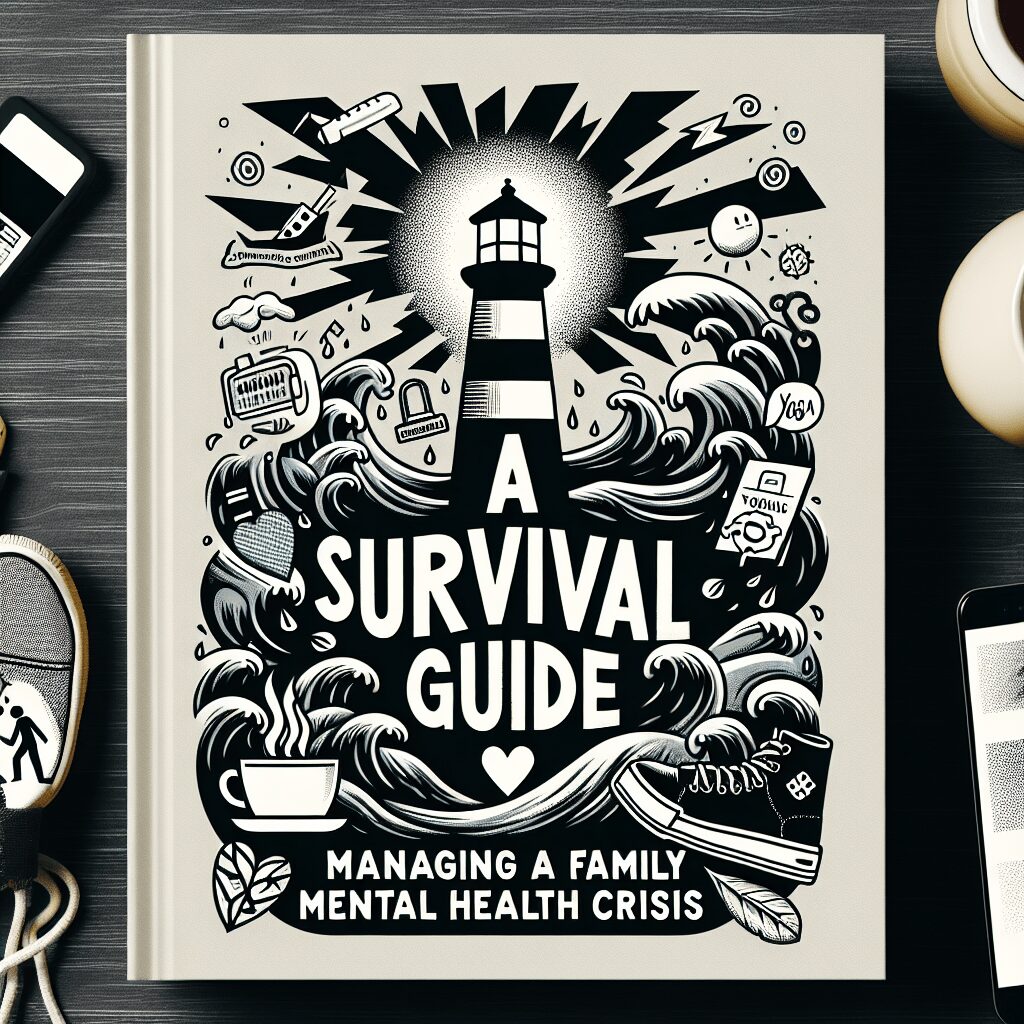Navigating the Storm: A Family Survival Guide for Mental Health Crises
As a caregiver and veteran parent, I know firsthand how overwhelming it can be to navigate mental health crises within the family. The storm can come suddenly; anxiety can spike, depression can loom, and emotions can run high. However, with each tempest comes the opportunity to not just survive but to thrive as a family. This blog post aims to empower you with realistic strategies and heartfelt advice drawn from experience, hope, and compassion. Together, we can weather these storms and find sunshine once again.
Understanding Mental Health Crises
What is a Mental Health Crisis?
A mental health crisis is a situation where someone is unable to function normally due to overwhelming emotional distress. It can manifest in various ways, including severe anxiety, depressive episodes, or uncontrollable outbursts. These crises can affect anyone, regardless of age or background, and may occur unexpectedly. Understanding this concept is the first step toward navigating through it.
Why Support Matters
The Importance of Being a Supportive Caregiver
In the eye of the storm, your role as a caregiver is crucial. Providing emotional support and stability is pivotal. Here are several compelling reasons why your support matters:
- Trust Building: Your presence fosters an environment of trust where your loved one can express their feelings.
- Normalizing Emotions: Validating emotions helps to destigmatize mental health struggles.
- Encouraging Help: Your support can motivate your family member to seek professional help when necessary.
Strategies for Coping
How to Navigate a Mental Health Crisis
Navigating through a mental health crisis requires practical strategies. Here’s a list of ten concrete steps that could help your family during turbulent times:
- Maintain Calmness: Your composed demeanor can reassure your loved one.
- Listen Actively: Allow them to express their feelings openly without judgment.
- Establish Routines: Consistent schedules can provide a sense of security.
- Limit Stressors: Identify and reduce additional stressors that could exacerbate the situation.
- Set Boundaries: Healthy boundaries ensure that your needs are also met.
- Encourage Small Steps: Encourage them to tackle one thing at a time rather than overwhelming them with responsibilities.
- Seek Professional Help: Engage therapists, counselors, or mental health professionals when needed.
- Utilize Support Groups: Connecting with others facing similar challenges can provide comfort and solidarity.
- Practice Self-Care: Don’t neglect your own mental health; you need to be strong for them.
- Celebrate Small Wins: Recognize and celebrate even the tiniest victories towards recovery.
Creating a Safe Space
How to Build an Environment of Trust and Safety
One of the most effective ways to support your loved one during a mental health crisis is to create a safe space. Here’s how you can foster that environment:
- Physical Comfort: Ensure that your home is a comforting and relaxing space, free from chaos.
- Emotional Availability: Make time for meaningful conversations and listening sessions.
- Encourage Open Dialogue: Promote a culture where family members feel safe to express their feelings.
When to Seek Professional Help
Recognizing the Right Time for Professional Support
While family support is incredibly valuable, there are times when professional intervention is necessary. Here are some signs that it’s time to seek help:
- Suicidal Thoughts: Immediate professional help is needed if anyone is experiencing such feelings.
- Psychotic Symptoms: Delusions or hallucinations require urgent care.
- Inability to Function: If daily tasks become daunting, getting help is essential.
- Substance Abuse: If coping mechanisms involve alcohol or drugs, it’s time to consult a professional.
- Violence: If there’s a risk of harm to self or others, act swiftly and seek intervention.
FAQs
What should I do in a mental health crisis?
In a mental health crisis, the first step is to maintain your composure. Listen actively to your loved one and evaluate if professional help is necessary.
How can I help without feeling overwhelmed?
Set boundaries and practice self-care. Seek support from friends or groups to avoid feeling isolated.
What resources are available?
Look out for local mental health clinics, counselors, or hotlines that specialize in crisis intervention.
Is therapy for children effective?
Yes, many children benefit from therapy, learning to express their emotions and develop coping strategies.
When should I intervene in my child’s mental health issues?
If you notice significant changes in behavior, mood, or social interactions that last over time, it’s important to seek help.
In conclusion, although navigating a mental health crisis can feel overwhelming, know that you are not alone. Each experience holds the potential for growth and understanding, paving the way for a stronger family bond. Embrace each other during these challenging times, and let hope be your guiding light.
Instantly Access Your FREE Children’s Books Here! (https://payhip.com/BlueCherryStore)
Disclaimer: As an Amazon Associate, I earn from qualifying purchases, I may earn a commission from qualifying purchases as an affiliate. Please note that I only recommend products I believe will provide value to my readers.









